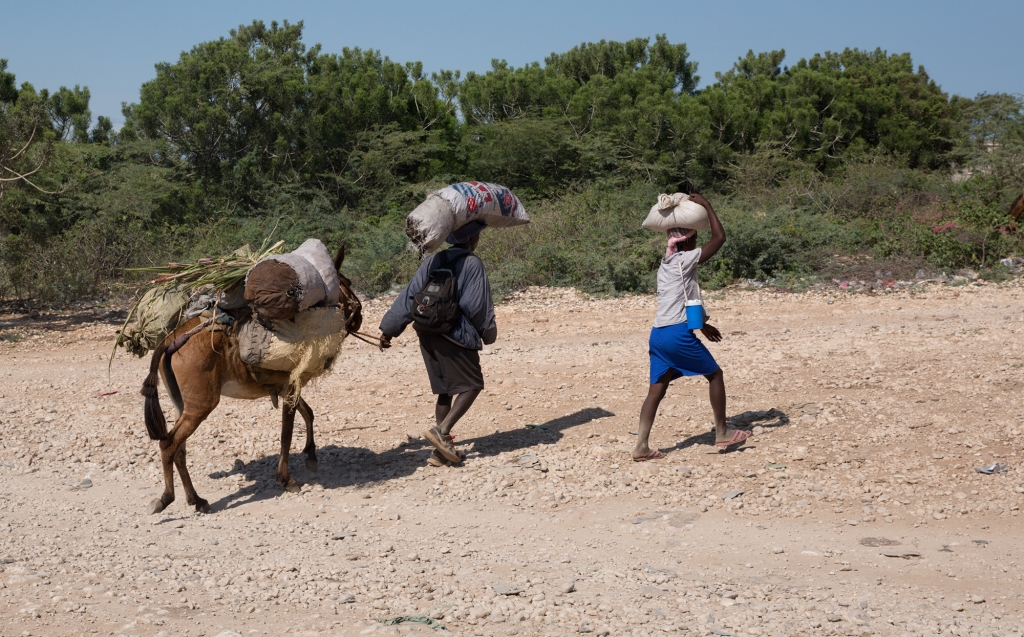
Welfare Concerns After Study Shows More Than 75% Of Those Reliant On Working Horses Around The World See Negative Effect From Covid-19 Pandemic
A large ground-breaking collaborative study between World Horse Welfare and the School of Veterinary Medicine and Science, University of Nottingham published in the journal Animals showed that the Covid-19 pandemic has had a significant effect on families around the world that use equids (horses, ponies, donkeys and mules) for their livelihood with knock-on effects on the welfare of their equids.
Izzy Wild, lead author and Programme Officer in the International department at World Horse Welfare said: “Many of the large number of people who need their horses, donkey and mules to work are already living on low or very low incomes and have little in reserve when that work isn’t available. We quickly started seeing impacts on both the people and their equids in the different projects around the world that World Horse Welfare were involved with when Covid-19 hit and so we set out to determine just what the implications were on these people and the animals they rely on.”
From the more than 1,500 responses received from 14 countries across Latin America, Africa and Asia surveyed at the end of 2020, 60% of families relying on working equids were working less and nearly 80% had suffered a decrease in household income. Compared to pre-pandemic levels, the majority of equids were also working less as the pandemic affected working patterns, and equid-derived income and total household income had also decreased. The day-to-day costs of caring for the working animals during that time, however, had remained the same or even increased.
Responses from the survey showed that equid welfare had been impacted variably across the different projects and countries and, in some, animal condition actually improved because they were rested and not working as hard as they normally would. Others had lost weight as their owners were no longer able to afford the necessary feed required and, long term, it is considered likely that the equids will suffer, with seasonal changes requiring more food and prolonged loss of income to the owners combining to create a significant welfare issue if the pandemic continues to affect the ability of the owners to generate income. World Horse Welfare are actively seeking to collaborate with other animal NGOs, humanitarian organisations and governments to try and mitigate some of these issues, as many of these communities have been marginalised and do not have the support they need.
Izzy said: “We are working with each of the individual teams and targeting interventions based on each of their project's results. Some of these are underway, for example in Mexico, owners had negative outlook as a result of the effects of market closures and decreased income, and a number of equids were in poor condition.
In Mexico, 100 of the equids in poorest body condition were selected for feed and veterinary relief over a three-month period with owners and carers receiving additional support and feed provisions/vet care. The body condition of the animals was monitored throughout to confirm if the animals were gaining, maintaining or losing weight and a further questionnaire will be made at the end of the intervention to ensure that the work is impactful.
“We hope that the results of this survey will make an impact and ensure that the equid owner/carers and equids get the help they clearly need at this very challenging time and we know that the situation will need to be monitored as it continues to assess if animal welfare deteriorates and, if so, to intervene in time.”
World Horse Welfare works providing hands-on equine health and welfare care to working equids around the world and currently has projects in all 14 of the countries surveyed, ranging across Latin America, Africa and Asia. Working equines lead demanding lives working in exhausting conditions, which can cause a wide range of health and welfare problems, including illness, injury and disease. Many of the projects help to provide primary first aid care for equines in the field and at local centres.
The study was a team effort between World Horse Welfare staff in the UK, partner organisations around the world and University of Nottingham. All those involved would like to thanks all the international equid owners who gave up their time to answer the survey questions.
More from World Horse Welfare
- World Horse Welfare statement in response to the UK Government's new Animal Welfare Strategy
- From scared and in danger to safe and cared for – terrified foal dumped by a railway line transforms at Somerset rescue centre
- Equestrians, politicians, academics and a zookeeper to convene at event to explore the world Through the horse’s eyes
- New support service launched to help struggling horse owners
- Social Media: why good horse welfare makes good content

 5 years ago
5 years ago  892 views
892 views
